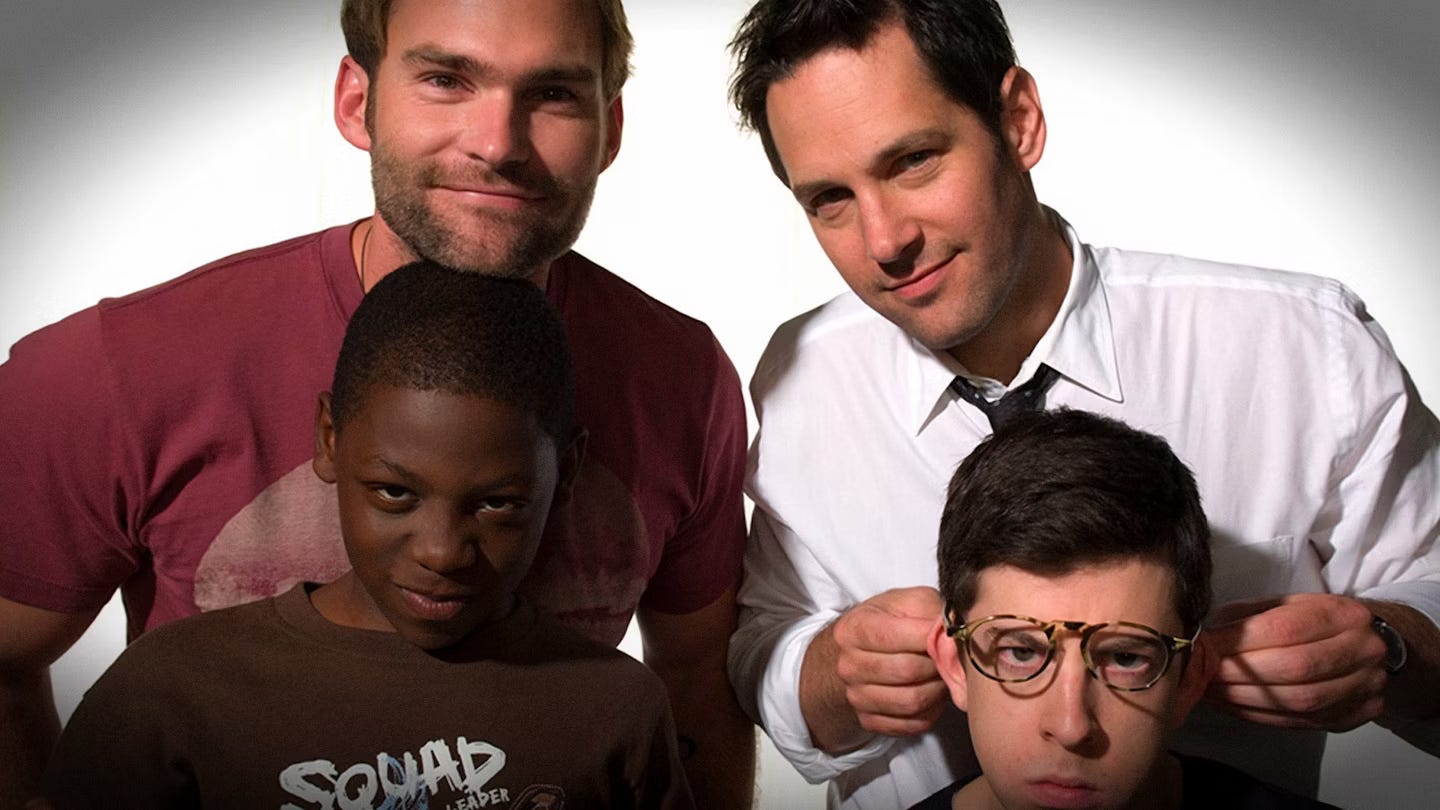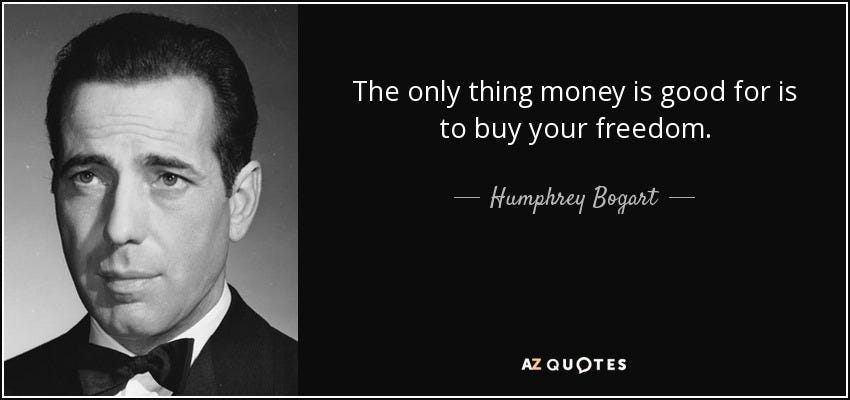Highlights from EconoMe 2: Advice for Couples from Alan and Katie Donegan
How to skip the finance fights and start living our best lives sooner
If you thought getting a handle on your personal finances was a pain in the ass when you were single, just wait until you are in a committed romantic relationship. Adding another person to the mix often causes financial stressors to multiply. No surprise, financial conflict is seen as one of the top reasons for divorce.
But I’m not here to be a doomer! I want to talk to you about what I learned during Alan and Katie Donegan’s Financial Independence for Couples breakout session at EconoMe.
Alan and Katie brought great energy to their presentation and laid out an effective plan for how couples can get on the same page when it comes to their financial lives. That said, their plan included 17 steps (16 if you subtract listening to the album they created) which is a lot to follow. I’ve reorganized their content a bit in hopes of making it more concise.
Understand them first: What are our goals? What motivates us?
Key questions to find those answers
What would they do if they didn’t have to work?
If you had $10 million, what would you do?
What do you care about in each life area?
Uncover their values: What’s important to us? What do we stand for? How do we live those values day-to-day?
Key questions to find those answers
Who do you admire? Who do you see as a role model?
Who or what drives you crazy?
What kinds of activities drain you?
What kinds of activities energize you?
Create a vision of the future: Where do we want to go? How would we feel if our lives were more aligned to our values?
They suggest that you each come up with a vision for each area of life separately over the course of a week then come back together to share.
Your visions could take any number of shapes: lists, collages, vision boards, poetry, etc
By better understanding your partner’s vision, you can show how FI helps them reach their goals faster and easier.
Grow together: Who are we? How can we grow together? How do we go deeper?
From self-development courses to couples coaching, there’s lots of ways for you two to learn more about each other and grow closer. Consider exploring some of these options together and on your own.
Another point of discussion here is to think about who each of you like to learn from, and what formats you each prefer to use to learn new things.
Uncover your money experiences: How are our past experiences influencing our financial behaviors?
Each one of us has a personal relationship with money that is colored by our experience as children and young adults. Reflecting on these together can help us become more aware of past experiences that influence our mindsets and behavior when it comes to finances.
Key questions to discuss:
What did your parents teach you about it?
Did you have enough money growing up?
Did your parents have enough money growing up?
Did your parents talk or argue about money?
Start a monthly finance meeting: When can we talk about our money?
A past boss of mine once said “If it’s not on the calendar it doesn’t exist.” What I took away from that is that we have to intentionally make time for the important things otherwise we’ll forget them until it’s too late.
Personal finances are a critical part of any successful relationship, so you should make space for discussions about it. Don’t make it an ambush!
The meeting doesn’t need to take long. One hour a month should cover it.
Do what you can to ensure that both of you are relaxed coming into conversation. Eventually, this meeting should be something you both look forward to.
Be flexible but committed. If it's on the schedule but someone is sick or dealing with some kind of crisis, be human and reschedule for another time. Don’t push it too far out though. Consistency is key.
No one wants to feel like they are coming into the principal's office to get scolded about their financial habits. Create an inviting environment so that you both will feel more comfortable and more relaxed which will make conversations easier.
Think outside of the box: Maybe make a nice brunch in the backyard and discuss your finances over mimosas and pancakes?
Get others involved: Who else could or should be part of the conversation?
These days many people live in multi-generational households and while it can be scary to think about getting everyone involved in the finances, that kind of collaboration and coordination can lead to huge dividends in the future.
If you have kids, ask them about their life goals. They usually love being asked for their opinion and could have some pretty interesting things to say. It’ll also help them be more comfortable discussing finances when they are older.
If you support aging parents, collaborating on financial matters is key to reducing conflict and smooth planning.
On a related note, you could consider joining a local ChoseFI group and become part of a community where people are open about their finances and are happy to share insights and advice.
Make it fun! How can we keep this interesting?
The journey to Financial Independence doesn’t just have to be spreadsheets and economic reports, there’s tons of options for making this fun.
You could have a money focused movie night: Wolf of Wall Street, The Big Short, Trading Places, Dumb Money, the list goes one
Go for a No Spending Challenge
Establish awards and achievements for reaching milestones
Do it with other people: Get your friends involved or make some new ones at EconoMe or a CampFI
Make a scavenger hunt out of following different financial educators, influencers, and activists
Start thinking about yourselves as multiple people: How can we help our future selves find freedom faster?
One of the most powerful ideas I took away from the Donegan’s talk is reframing savings as buying your freedom.
I’d like to combine this concept with a practice I’ve been trying to focus on for the last several years which is showing gratitude to my past self. This probably sounds a little funny but I swear it makes sense if you think about it. I’ll give you a few examples.
I’m grateful that my past self set up a 401k 7 years ago, and I’m helping my future self reach freedom faster by saving and investing at a high rate.
I’m grateful to my past self for developing a love of reading, and I’m helping my future self by visiting my local library to access free books instead of spending all my money at Barnes and Noble.
As silly as it sounds, I’ve found that this kind of thinking can really help your mindset and attitude when it comes to your personal finances.
Again, I really enjoyed the Donegan’s session, and I definitely recommend you check them out. I took away a lot of great information from their discussion. and I hope you enjoyed reading about some of the highlights. What do you think about the steps they laid out? Anything you want to start working on with your partner or will be keeping in mind for a future relationship?
My Substack is free but if you feel like buying me a coffee that’d be nice!






I didn’t get to attend this session, but it seems like good advice. If it isn’t on the calendar then it doesn’t happen, isn’t that the truth!